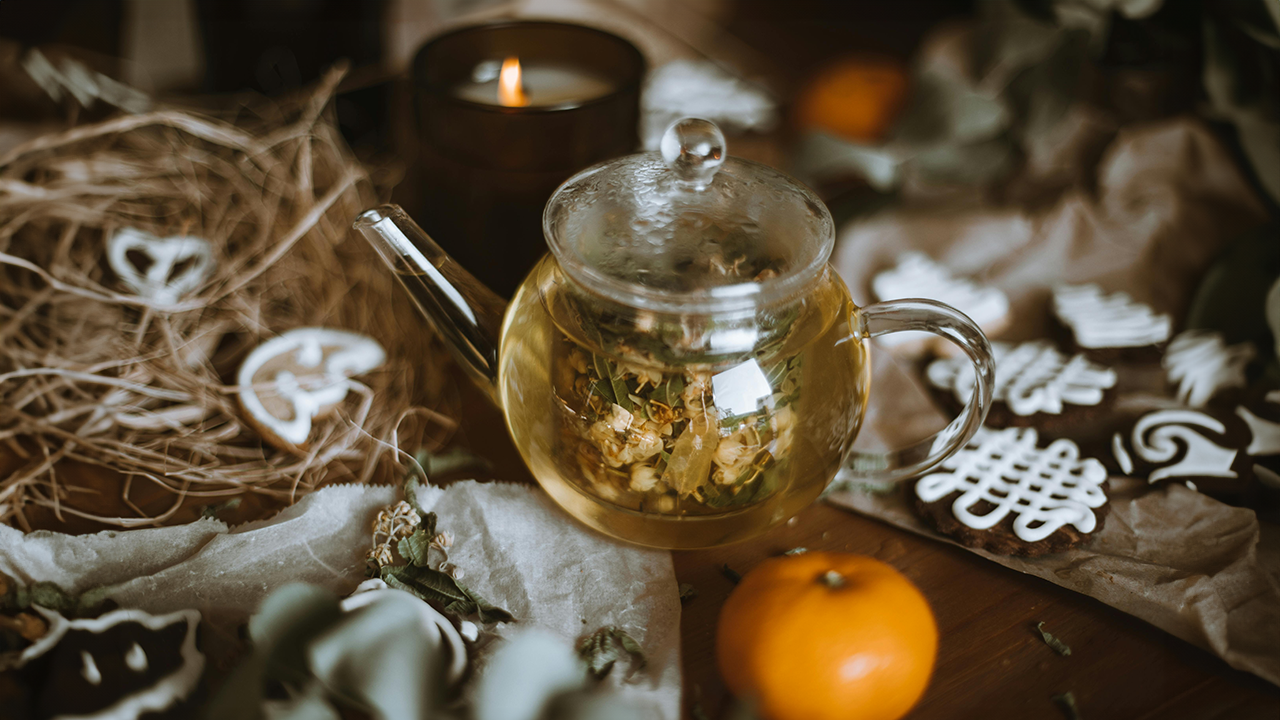How to Make Herbal Tea
May 31, 2023
For ages, herbs have been like our faithful allies on the path to feeling good. They bring a bunch of goodness with their natural plant powers, which can really boost our health.
Herbal tea, especially, shines bright because it's easy to get, you can make it just the way you like, and it's good for the planet too. It's like giving yourself a little wellness boost every day, in a gentle and caring way.
Hold up! Are you an auditory learner? LISTEN to this article in podcast or WATCH in video format ⬇️⬇️⬇️⬇️
Why Herbal Tea?
Herbs play a vital role in long-term wellness, often considered the people's medicine. With a history as old as humanity itself, herbs offer numerous health benefits through plant phytochemicals.
Integrating herbs into your daily routine is not only accessible and customizable but also sustainable, empowering individuals to care for their bodies. In the evolving landscape of medical versus wellness care, herbal medicine bridges the gap, providing a valuable extension of health benefits.
Understanding Herbal Tea
Before we dive in, it's crucial to differentiate between true tea and herbal tea. True tea, derived from the Camellia sinensis plant, is often brewed for pleasure rather than medicinal purposes. Herbal teas, however, are water extractions crafted from various herbs, flowers, and plant parts, offering medicinal qualities.
Methods of Water Extraction: Infusion and Decoction
In herbalism, water extractions involve two primary methods: infusion and decoction.

The Infusion Method
Infusion entails steeping delicate plant parts like leaves and flowers in hot water to extract medicinal properties. Commonly used for herbs like chamomile and mint, making an infusion involves simple steps:
1. Place your dried herbs in a jar or French press.
2. Use about 1-2 teaspoons of herbs per cup of water.
3. Pour boiling water over the herbs and let them steep for 20-60 minutes.
4. Strain the infusion and add sweetener or milk to taste.
5. Enjoy your freshly brewed herbal tea as part of your daily wellness routine.
The Decoction Method
Decoction is ideal for tougher plant parts like roots and barks, requiring prolonged boiling for effective extraction. While slightly more labor-intensive, creating a decoction is straightforward:
1. Add 1-2 teaspoons of herbs per cup of water to a pot.
2. Bring the water to a boil, then reduce the heat and let the herbs simmer for 15-30 minutes.
3. Cover the pot to retain the medicinal properties.
4. Strain the decoction and customize it with sweeteners or milk if desired.
5. Store any excess decoction in the fridge for 1-3 days or freeze it into cubes for later use.

Personalization Tips and Insights for Your Herbal Tea
Customization is key in your herbal journey. Adjust herb quantities, brewing times, and water ratios to suit your taste and desired strength. Remember, the goal is to create a tea you'll enjoy regularly for optimal wellness.
Herbs are transformative when consistently consumed, impacting both short and long-term well-being.
Herbal tea offers a gateway to holistic wellness, inviting us to nurture our bodies and minds with the healing power of plants.
Whether you prefer a soothing infusion or a robust decoction, embrace the journey of herbalism with an open heart and a curious spirit.
Cheers to your wellness, my friend.
Listen to this post on the Herbs + Ease Podcast for a more detailed educational experience!


Kristen Prosen
